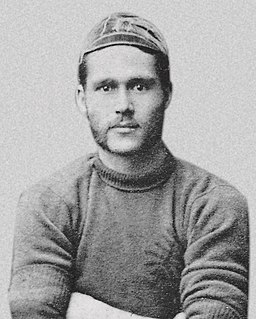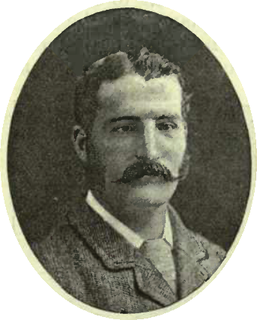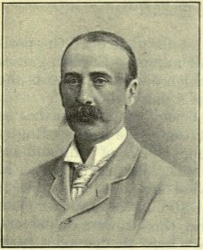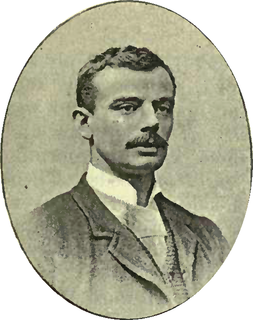
The England national rugby union team represents England in men's international rugby union. They compete in the annual Six Nations Championship with France, Ireland, Italy, Scotland and Wales. England have won the championship on 29 occasions – winning the Grand Slam 13 times and the Triple Crown 26 times – making them the most successful outright winners in the tournament's history. As of 15 November 2021, England are ranked third in the world by the International Rugby Board. They are currently the only team from the Northern Hemisphere to win the Rugby World Cup, having won the tournament in 2003, and have been runners-up on three other occasions.
Blackheath Football Club is a rugby union club based in Well Hall, Eltham in south-east London.

The 1888–89 New Zealand Native football team was a New Zealand rugby union team that toured Britain, Ireland, Australia and New Zealand in 1888 and 1889. It mostly comprised players of Māori ancestry, but also included some Pākehā. A wholly private endeavour, the tour was not under the auspices of any official rugby authority; it was organised by New Zealand international player Joseph Warbrick, promoted by public servant Thomas Eyton, and managed by James Scott, a publican. The Natives were the first New Zealand team to perform a haka, and also the first to wear all black. They played 107 rugby matches during the tour, as well as a small number of Victorian Rules football and association football matches in Australia. Having made a significant impact on the development of New Zealand rugby, the Natives were inducted into the World Rugby Hall of Fame in 2008.

Joseph Astbury Warbrick was a Māori rugby union player who represented New Zealand on their 1884 tour to Australia and later captained the 1888–89 New Zealand Native football team that embarked on a 107-match tour of New Zealand, Australia, and the British Isles.
Charles Plumpton Wilson was an English amateur footballer who played at wing-half. He made two appearances for England in 1884. He was also capped for the England national rugby union team in 1881, and was one of only three players to be capped for England at both Association football and rugby football.

Edward Kewley was an English sportsman who played rugby union for England and also played first-class cricket for Lancashire. He captained England three times, and was the first captain to be drawn from the north of England as well as captaining England in the first ever 15-a-side international.

Frederick Stokes was the first captain of the England national rugby union team, who played for and captained the team in the first three rugby internationals, all between England and Scotland. He was also the youngest president of the Rugby Football Union.
The Marlborough Nomads was a 19th-century English rugby union club that was notable for being one of the twenty-one founding members of the Rugby Football Union. They also supplied a number of players for the sport's early international fixtures.
The West Kent Football Club was a short-lived 19th century rugby football club that was notable for being one of the twenty-one founding members of the Rugby Football Union, as well as producing a number of international players in the sport's early international fixtures.

The 1880–81 Home Nations rugby union matches were a series of international rugby union friendlies held between the England, Ireland, Scotland and Wales national rugby union teams. This season is most notable for the introduction of Wales as an international rugby union nation, playing their first ever match in a game against England. Although Wales were humiliated by a crushing defeat it did not stop rugby union being adopted by Wales as the country's national sport.

Colonel Richard Davies Garnons Williams was a British Army officer and Welsh rugby union player who represented Wales, Brecon and Newport. He played in the first Wales international rugby union match in 1881.

Rectory Field is a sports ground in Blackheath in the Royal Borough of Greenwich in south-east London. It was developed in the 1880s by Blackheath Cricket, Football and Lawn Tennis Company and became the home ground of rugby union team Blackheath F.C. between 1883 and 2016. The ground has hosted international rugby matches and at one time, along with the Richmond Athletic Ground, it was the unofficial home of the England national rugby union team before the development of Twickenham Stadium. The ground was also used for first-class and List A cricket by Kent County Cricket Club between 1887 and 1972.
Andrew Ramsay "Bunny" Don-Wauchope was a Scottish international rugby union back who played club rugby for Cambridge and Fettesian-Lorettonian. Don Wauchope played an important role within the early growth of Scottish rugby and after retiring from international rugby he became a referee and was the President of the Scottish Rugby Union. He was considered Scotland's outstanding half-back of the early 1880s and is credited as being one of the pioneers of modern half-back play.

Francis Luscombe was a rugby union international who represented England from 1872 to 1876. He also captained his country.

Fernand "Fred" Bonsor was a rugby union international who represented England from 1886 to 1889, he also captained his country. At club level he played for Bradford FC, and Skipton RFC.

John Lawrence "Laurie" Hickson was an English rugby union footballer who played in the 1880s and 1890s. He played at representative level for England (captain), and Yorkshire, and at club level for Bradford FC, a forward, e.g. front row, lock, or back row. Prior to Tuesday 27 August 1895, Bradford FC was a rugby union club, it then became a rugby league club, and since 1907 it has been the association football (soccer) club Bradford Park Avenue.

Joseph Green (1846–1923) was a rugby union international who represented England in 1871 in the first international match.

Middlesex Rugby is the governing body for rugby union in Middlesex, England; Middlesex is a historic county of England that covers areas in the ceremonial counties of Greater London, Surrey and Hertfordshire. The historic county is still in use when referring to sport, businesses and postal addresses in the area. Middlesex RFU was originally created as the Middlesex County Rugby Club but within six years was being referred to as the Middlesex County Rugby Football Union and is now known simply as Middlesex Rugby.
Alexander "Alec" William Pearson was a rugby union international who represented England from 1875 to 1878. He was described as late as 1925 as "about as fíne a full back as ever played", and was the first Australian born rugby union international.
Graham Stokes was an English cricketer who played first-class cricket for Kent County Cricket Club in the early 1880s.














